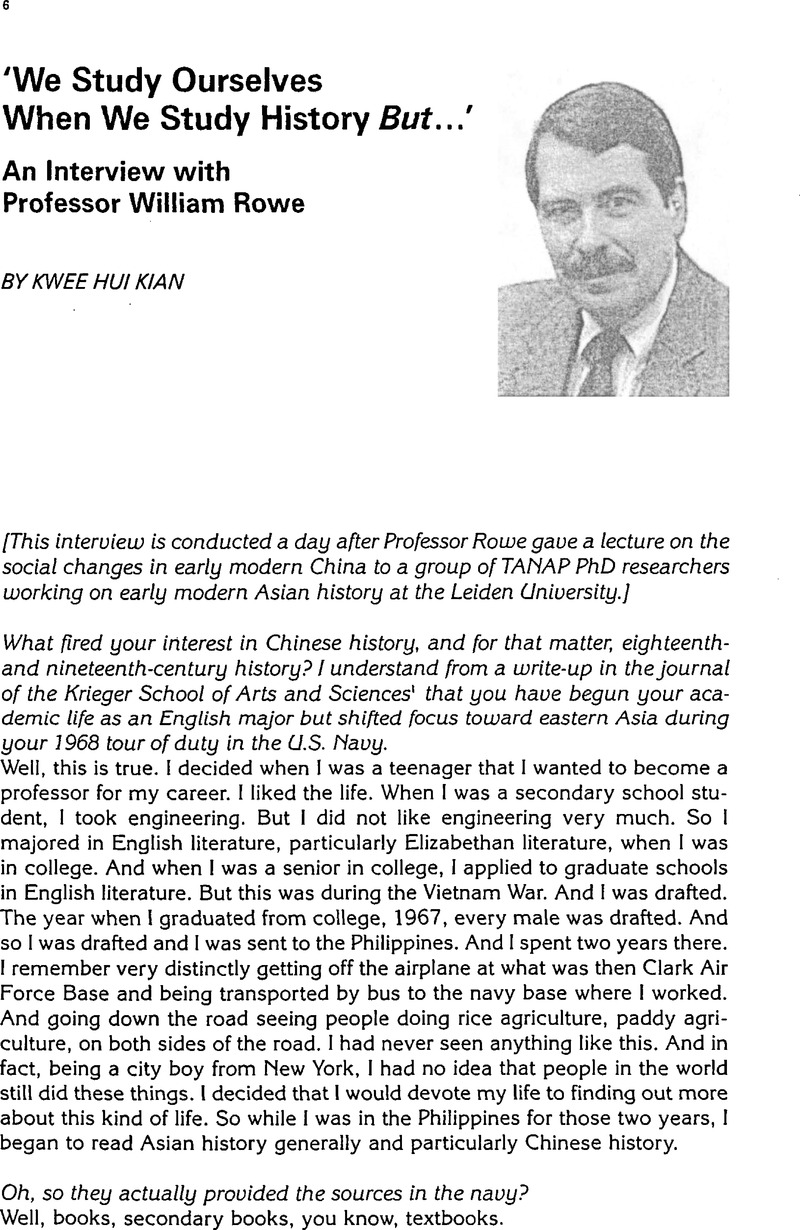No CrossRef data available.
Article contents
'We Study Ourselves When We Study History But…' An Interview with Professor William Rowe
Published online by Cambridge University Press: 22 June 2011
Abstract

- Type
- Interview
- Information
- Copyright
- Copyright © Research Institute for History, Leiden University 2005
References
Notes
2 Wakeman, F., Strangers at the Gate: Social Disorder in South China, 1839–1861 (Berkeley, 1966)Google Scholar.
3 Kuhn, P., Rebellion and Its Enemies in Late Imperial China: Militarization and Social Structure, 1796–1864 (Cambridge, 1970).Google Scholar
4 Thompson, E.P., The Making of the English Working Class (First edn, Penguin, 1977).Google Scholar
5 Chevalier, L., Laboring Classes and Dangerous Classes in Paris during the First Half of the Nineteenth Century, trans. Jellinek, F. (First edn, Paris, New York, 2000;).Google Scholar
6 Ginzburg, C., The Cheese and the Worms: The Cosmos of a Sixteenth-Century Miller trans,. , J. and Tedeschi, A., (First edn, Torino, 1976, London, 1980).Google Scholar
7 Hankow is present-day Wuhan.
8 Naquin, S., Millenarian Rebellion in China: The Eight Trigrams Uprising of 1813 (New Haven, 1976).Google Scholar


